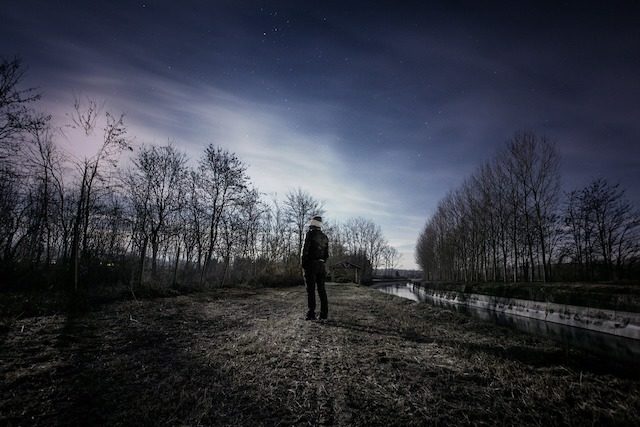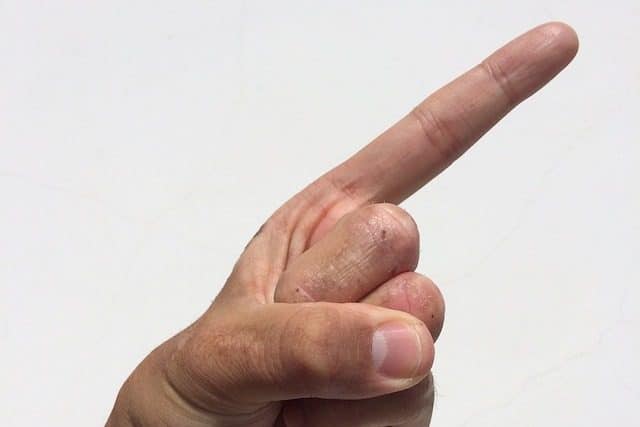Death is as common as any other function of the human body, though we still try to avoid talking about it. It’s mostly because we don’t quite understand it, though philosophical discussions aside, scientifically speaking, death is a pretty straightforward phenomenon. It’s what happens when living cells age to the point they can no longer stay alive, and it happens to every living thing that exists.
Despite being so widespread, there are still many misconceptions and myths surrounding death most of us believe. Everything from old wives’ tales to popular movies suggest that we have a vague understanding of what can and cannot kill us. It makes sense to an extent, as it’s still a subject people don’t like to discuss. It’s a problem, though, when some of these myths cause actual problems in real life situations. If it weren’t for some of these myths, we’d have a much better understanding of how to deal with accidents and other unforeseen events.
10. Starting Fire In A Cave Will Get You Killed

We’re not sure if it’s because of war movies involving guerrilla warfare or intuitive (though inaccurate) sense of disaster management, but too many of us think that starting a fire in a cave in desperate situations is a good idea. Forget desperate situations — it doesn’t sound like a bad place to have a party, either. Fires in caves make for a cozy setting in our heads, as movies have told us that it is. As anyone who has actually tried to do that would tell you, though, it’s a pretty bad idea.
When you’re in a hole made up of rocks stacked together on top of you and held together by years of geological balancing, it’s a good idea to not do anything to move them. A fire would immediately start heating up and expanding the space around it, and if you do it for a long enough duration, it could even dislodge the rocks. That’s why adventure enthusiasts know that a cave is the worst place to start a fire in almost all circumstances, unless you’re lost in a huge cave and there’s no other place. Stories of people sitting around a fire in a cave make for good fairytales and war films, though it’s one of those things in fiction that don’t translate too well in real life (by which we mean it could kill you).
9. Lost In The Desert? Look For Shade Instead Of Water

Survival shows insist that the first thing you have to do if you’re lost in a desert is to look for a source of water. After all, lack of hydration would kill you much faster than lack of food. Going out to hunt for water seems like a logical and rather straightforward plan, as you have read about lush oases and heroic stories of survival in the desert before.
While it’s 100% accurate that preserving water is a priority if you’re stuck in a desert, looking for a water source all the time is not the way to do it, and may even prove to be fatal. Moving at all during the day would deplete the water resources of your body much faster than any amount you would find during your search.
Experts agree that the first thing you need to do if you’re alone in a desert without resources is finding shade from the sun, as preserving the considerable water resources of the body is much more important in the short term. Going out to find water and supplies (and possibly civilization) is a good idea once the sun is down, but then again, make sure you don’t venture too far, as…
8. If You Can’t Find Your Way Back, Stay Put

People have wildly varying pieces of advice on what to do if you’re ever lost in the wilderness, which – surprisingly – still happens a lot. From ‘stay calm’ to ‘why would you go there in the first place?’, it depends on who you ask, but it’s generally agreed that taking measures to not get lost in the first place is, in fact, sound advice. Regardless, many people still find themselves in that situation due to a lack of accessibility and connectivity in vast regions of the planet. Once you’re lost, things could go very wrong depending on where you are, though there are still ways to get out of it alive. What you shouldn’t do, however, is go out and try to find help.
Most experts agree that if you’re ever lost and looking for a way out, the worst thing you can do is move around a lot; something popular wisdom suggests is a good idea. While some travelers would tell you to follow the water source, survival experts maintain that the best thing to do is staying put, as it’s much more likely for help to reach you that way. Of course, if no one has come looking for you for a few days and you’re sure that you’d have to do this one yourself, following a water body is the best course of action. In most cases, though, help does arrive long before it comes to that.
7. Gunshot To Arm/Leg Can Easily Kill You

We can’t entirely blame the movies for myths around guns, as thanks to America’s ongoing debate and abundance of firearms, there are plenty of real-life myths to go around. The most widely held one, though, must be the one about shooting in the arm or leg as a warning shot. It’s assumed that it’s no big deal to shoot the limbs and could even be done for fun like in the movies, as the real damage is actually when you shoot the main organs.
In reality, the chances of dying from a gunshot wound to the arm are as high as many other parts of the body; unless they get you right in your lungs. Many deaths on the battlefield occur due to bleeding out and delayed medical care instead of wounds to vital organs. Medical professionals understand that gunshots could be dangerous regardless of their placement on the body, as a punctured jugular vein is fatal whether it’s in the arm or the neck.
6. Waking A Sleepwalker Can’t Kill Them

Sleepwalking has fascinated us for as long as we can remember. It’s not exactly a disorder, and could be understood as an overly active dream than anything else. Yet, we know little about the exact mechanisms that cause it.
Many myths around sleepwalking and sleepwalkers have carried over the centuries, and different cultures attribute different meaning towards it. Regardless of where you are, though, waking up a sleepwalker is considered to be bad for their brain almost everywhere. Quite a few of us believe that it may even rewire their brain and kill them.
In reality, waking someone up from sleepwalking will – at most – wake them up with a start, as it’s quite surprising to wake up standing, in the middle of doing something you’re not supposed to be doing while asleep. In fact, waking them up may keep them from doing something unsafe and hurting themselves (or others), though none of the effects involve any harm whatsoever.
5. Lethal Injection Is Hardly Painless

The political debate around capital punishment has largely died down, especially in the developed world. Many countries have abolished the death penalty, or have it on paper but haven’t put it to practice for a while. The United States is unique in the way that it still has the death penalty in many states. Even if the Federal government hasn’t executed anyone for a while, the states still regularly do.
No matter where you stand on the debate, the fact that lethal injection – usually claimed to be a painless method of execution – isn’t painless at all is concerning. Many death row inmates have suffered horribly at the hands of the executioner due to botched executions, as there has been little research on what the contents of the injection do to the human body. Many experts compare it to any of the other painful execution methods from history, like the gas chamber.
4. No Body Part Continues To Function After Death

Different variations of this myth exist depending on whom you ask. It’s widely believed that some parts of the body remain functional even after death, which is backed by fictional science in movies. Some say that it’s the heart, others claim that parts like nails and hair keep growing, and others yet claim that you could still blink hours after dying.
We’re not sure if it’s due to the inherent human need to deny the finality of death, but we’re sorry to report that nothing in the body works after death. Sure, some types of cells take several minutes to die out, but they’re not doing anything other than dying in that time. If the hair or nails continued to grow after death, we’d be seeing a lot of graves from history now starting to overflow with overgrown nails and hair.
3. Ingesting Chewing Gum Can’t Kill Birds (And Very Rarely Humans)

The impact of chewing gums on the environment keeps coming up in the news cycle, even though no research proves it. Chewing gum has rarely been proven to do more harm than other products we use more frequently, and yet they’re seen as a big environmental hazard almost everywhere around the world.
One factoid that keeps getting repeated is that chewing gum could get stuck in the throats of birds and could kill them, doing further damage to the ecosystem. In reality, there have been no reports of birds dying from chewing gums, mostly due to the obvious fact that discarded gums don’t look anything like bird food.
Moreover, ingesting gum is highly unlikely to kill most living things, even people, as it’s not difficult to pass through the digestive system. While people have certainly found ways to die from chewing gum in some rare cases, there were other, additional reasons that caused death rather than just choking on it. The belief about chewing gum staying in the system seven years after ingestion is also a myth.
All of this, though, doesn’t mean that you could now throw your chewed gums anywhere. They still cause a mess that’s difficult to clean.
2. Breast Cancer Doesn’t Just Kill Women

Breast cancer affects a lot of women around the world, and is one of the deadliest and most common types of cancer in most countries. What’s relatively less well-known, however, is the rate of breast cancer among men. Quite a few people think that breast cancer could only affect women, though that’s not the case. Even if it’s way less common, it’s still a real problem. Around 50 men will end up dying because of it this year alone.
Alarmingly, the number of fatalities among affected men has been on the rise in recent times. It has now surpassed fatality rates among women. The number of cases is rising at a faster rate, too, though we don’t quite understand why that is, either.
1. You Can’t Die From Expired Medicine

Expired medicine in most households is treated as literal poison, no matter how recent the expiration date was. That date is assumed to be definite and unwavering; the pill may even have a hidden switch to not work anymore and turn toxic immediately after that. In cases of stronger types of medicine for more serious diseases, expired medicine is even assumed to be fatal.
As it turns out, the expiry date is less of a precise time the medicine will go bad, and more of a general guideline on how long it would stay effective for. While certain medicines have been found to lose effectiveness after their expiry dates (like Aspirin), most of them stay effective well beyond it. And no, expired medicine isn’t dangerous at all, and can do little to no harm even after it has expired.